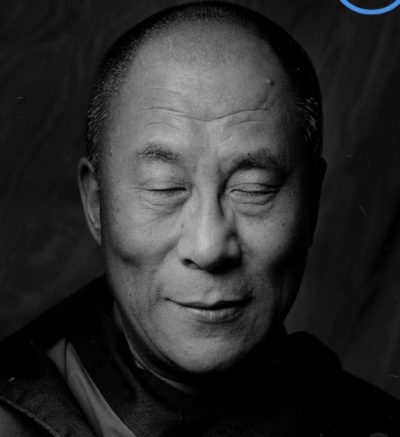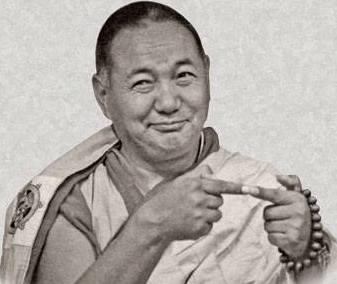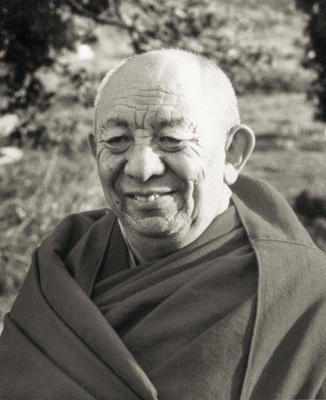
Serkong Tsenshab Rinpoche: If you want to gain complete liberation from cyclic existence, you have to follow the teachings of the Buddha completely and precisely. If you do so correctly, liberation from cyclic existence is definitely possible.
Serkong Tsenshab Rinpoche: Renunciation. New Delhi, India, 1979
Dharma protects us from suffering
The Sanskrit word Dharma [Tib: chö] means to hold, or uphold. What is it that Dharma upholds, or maintains? It is the elimination of suffering and the attainment of happiness. Dharma does this not only for us but for all other sentient beings as well.
The sufferings we experience are of two types: those immediately visible to us as humans and those we cannot see without psychic powers. The former include the pain involved in the birth process, the unpleasantness of occasionally becoming sick, the misery experienced by growing old and aging, and the terror of death.
The sufferings that come after death are not visible to an ordinary person. We might think that when we die we will probably be reborn as a human being.
However, this is not necessarily the case. There is no logical reason for us to assume that such an evolution will occur. Nor is it the case that after we die we will not take rebirth at all.
As for the particular type of rebirth we will take, this is very difficult to predict; it’s not within our present sphere of knowledge. If we generate positive karma during this life, it will naturally follow that we will take happy forms of rebirth in the future. Conversely, if we create mostly negative karma, we will not take a happy rebirth but experience great difficulties in lower states of being. This is certain. That’s the way rebirth works. If you plant a wheat seed, a wheat plant grows; if you plant a rice seed, a rice plant is produced. Similarly, if you create negative karma, you’re planting the seeds of rebirth in one of the three lower states as a hell being, a hungry ghost or an animal. Although the sufferings of the hell beings and hungry ghosts may be invisible to us, we can see those of the animals with our own eyes. If we wonder what it would be like if we ourselves were to be reborn as animals, we can just look at those around us and imagine what it would be like to be in their condition. Dharma is that which holds us back and protects us from experiencing the suffering of the three lower realms. Continue reading »
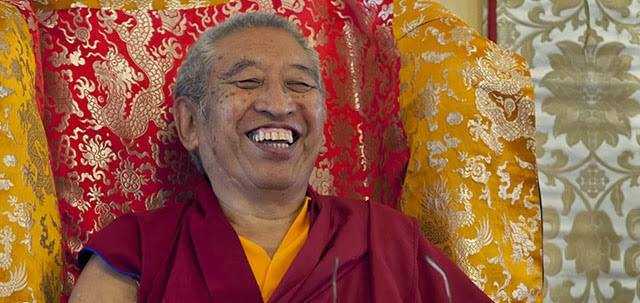

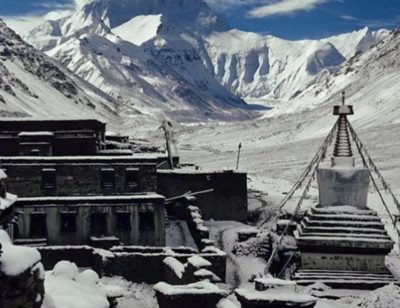 Matt Lindén: Cos’è il rifugio?
Matt Lindén: Cos’è il rifugio?